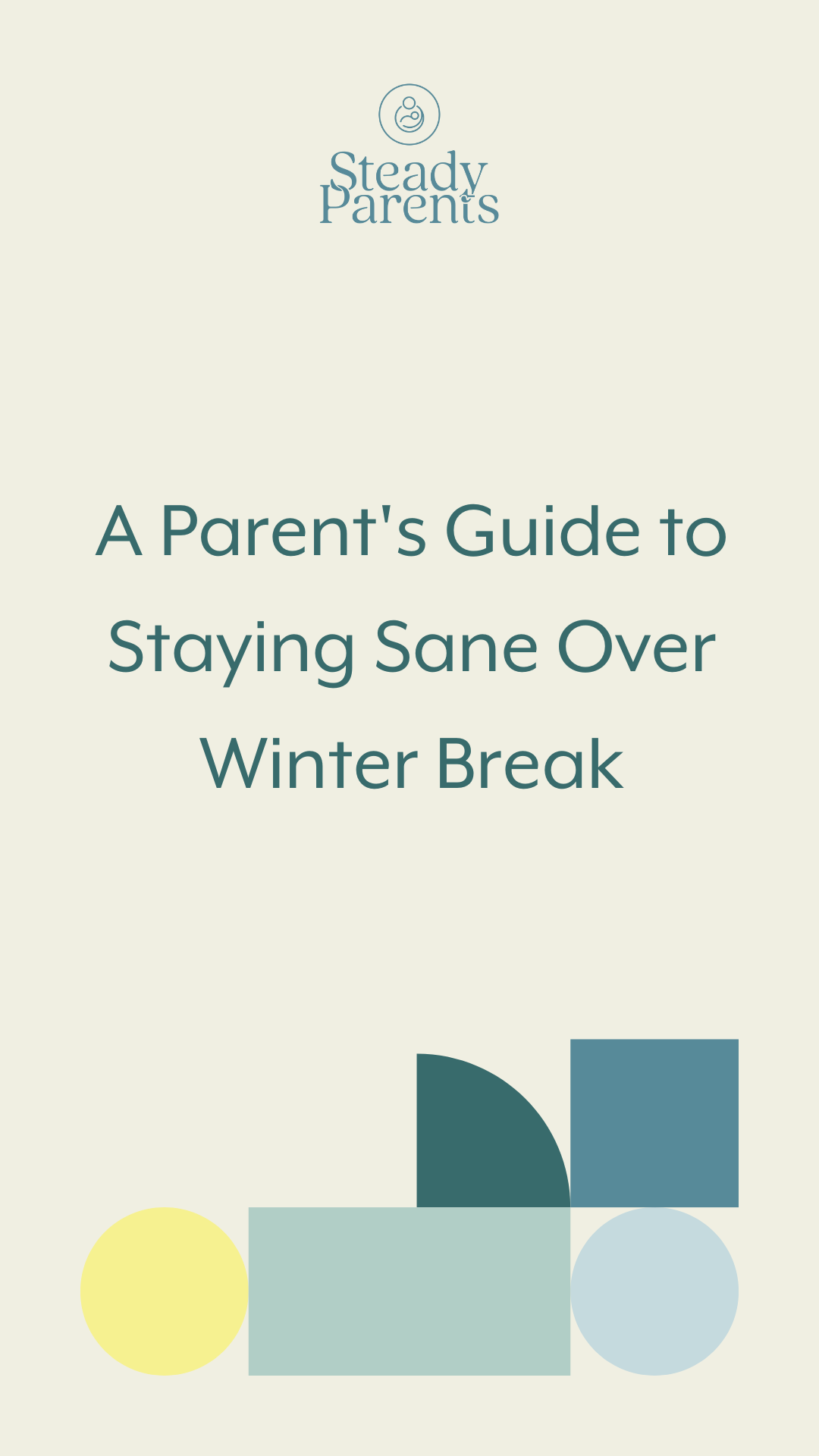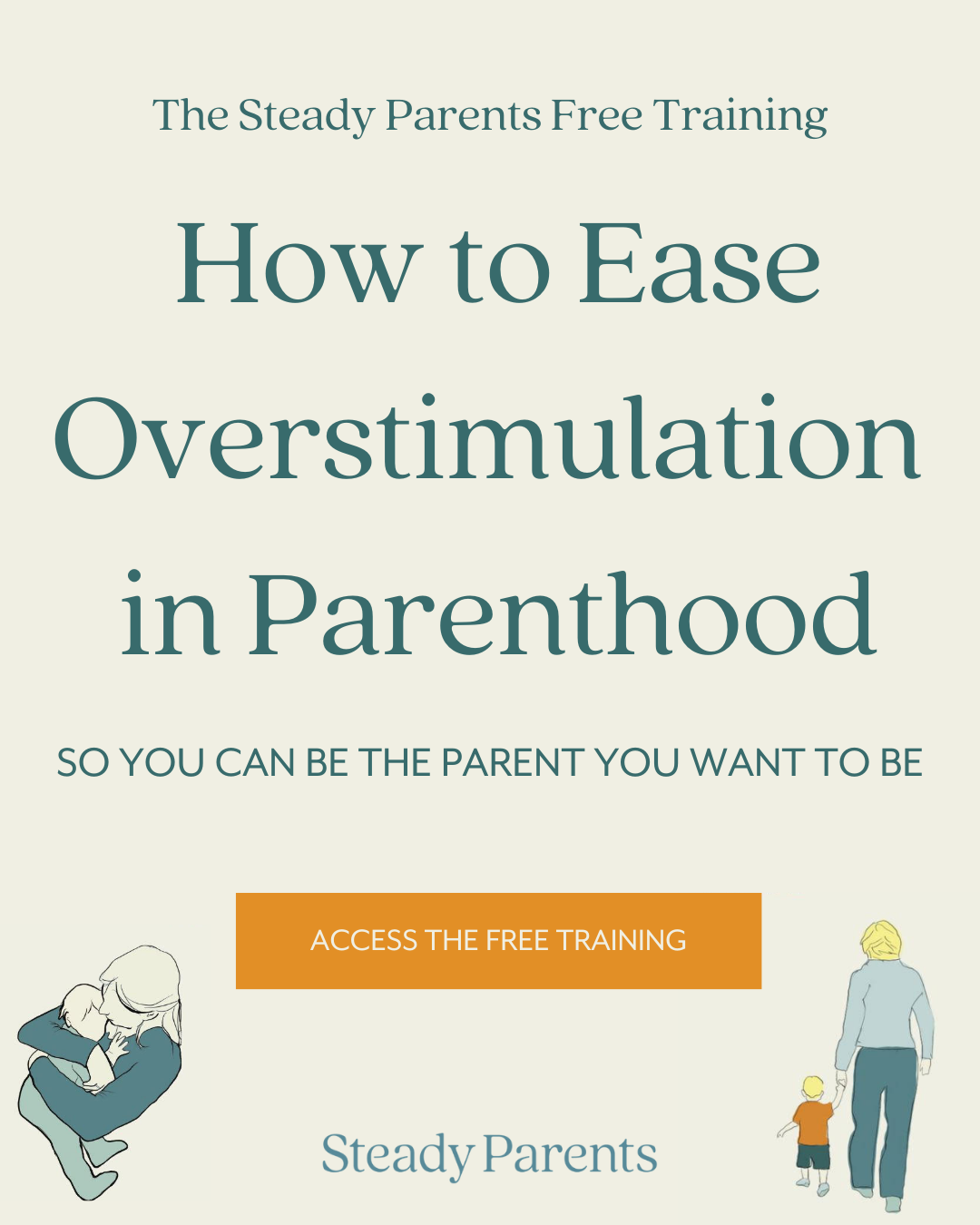A Parent's Guide to Staying Sane Over Winter Break
Winter break can be a really fun time to bond with your kids… until it isn’t. At a certain point, your kids (and you), will reach a breaking point where they are fighting all of the time, sick of being in the house, and just generally over or understimulated.
It’s hard to stay sane over winter break because this may not be your typical routine and our nervous systems can sense the change.
While the holiday season can be an exciting time for families, with the holiday festivities and quality time spent together, it can also be challenging for parents to manage the increased demands on their time and energy.
Here's a guide to help parents stay sane over winter break.
What Causes Our Mental Health to Suffer During Winter Break?
Several factors can contribute to a decline in mental health during winter break, and these can be exacerbated by various triggers. Here are some common contributors:
Disruption of Routine
I know I say this all the time, but a routine helps our sensory system know what is coming next. When we feel nervous or anxious about a change in our typical day, the fight or flight response becomes activated, cortisol spikes, and we get that anxious feeling.
The break from school or work routines can lead to a lack of structure, which may result in feelings of aimlessness and uncertainty. These changes can be disorienting so keeping your routine as close to normal as possible will give your brain the predictability it needs to cope with the stress of winter break.
Reduced Sunlight Exposure
This is true of the entire winter season, depending on where you live. The winter season is often associated with fewer daylight hours, leading to decreased exposure to natural sunlight.
If it’s cold where you live, you might not be able to or may be hesitant to go outside and brave the weather. But even just 15 minutes outside can make a huge difference in your mood by boosting your Vitamin D and serotonin levels, the mood boosting hormone (Source: Healthline).
Limited sunlight exposure can affect mood and disrupt circadian rhythms, potentially contributing to conditions like Seasonal Affective Disorder (SAD). So bundle up and get outside!
Noise and Overstimulation
The holiday season, with its festive events and gatherings, can bring about increased noise levels and overstimulation. Pair that with kids who are hyped up on holiday cookies and too much screen time and your house is bound to get a little rowdy.
The auditory system is directly linked to the fight or flight response through a branch of the vagus nerve. Therefore, it only makes sense that when your auditory system is overwhelmed, your entire nervous system will become overwhelmed.
So again, you are not alone, and what you are experiencing is a physiologically & evolutionarily appropriate response to intense auditory information.
Unrealistic Expectations
The holiday season often comes with societal and personal expectations about creating perfect moments and joyful experiences.Unrealistic expectations can lead to feelings of inadequacy or disappointment if reality doesn't match the idealized vision.
In case you missed last week's blog post, remember, you have the power to make the family traditions that best serve you and your family, even if that means choosing to opt-out of certain activities to preserve your sanity over winter break.
Unhealthy Coping Mechanisms
If you’re prone to overindulging in food or alcohol during winter break, keep in mind these behaviors can have negative consequences on your sleep, anxiety, and mood.
Lack of Physical Activity
Cold weather and holiday obligations may limit opportunities for outdoor activities and exercise.
Reduced physical activity can impact mood and contribute to feelings of lethargy.
Pressure to Create Perfect Moments
There can be pressure to create perfect holiday moments, which may lead to stress and anxiety.
Striving for perfection in decorating, cooking, and entertaining can be overwhelming and it doesn’t have to be this way!
Your kids will remember your effort for years to come- even if you don’t participate in Elf on the Shelf.
“Your kids will remember your effort for years to come- even if you don’t participate in Elf on the Shelf. ”
How Can Parents Stay Sane Over Winter Break?
To mitigate the impact of these factors, parents can focus on self-care, maintain realistic expectations, and prioritize activities that promote mental well-being. This may include finding time for outdoor activities, staying connected with loved ones, and practicing mindfulness.
Plan Activities in Advance
Create a rough schedule of activities for each day to keep everyone engaged. Consider a mix of indoor and outdoor activities to balance energy levels.
Healing Your Nervous System: 10 Tips to Preventing Overstimulation has a great list of activities you can use to cope.
Set Realistic Expectations
Accept that not every moment needs to be perfectly planned or filled with activities.
Embrace the idea that downtime is essential for both parents and kids.
Self-Care
Schedule some time for yourself each day, even if it's just 15 minutes. Use this time for activities that recharge you, whether it's reading, taking a walk, or practicing mindfulness.
Delegate Tasks
Share responsibilities with your partner or other family members. If you’re not sure how to talk to your partner about your sensory needs, consider reading this post which will help walk you through managing your different sensory needs together.
Consider enlisting the help of older children in age-appropriate tasks to reduce the workload on parents. You don’t have to spend your entire winter break rage cleaning!
Weather-Appropriate Activities
If the weather permits, engage in winter activities like sledding, building snowmen, or having a winter picnic. That heavy work can be so regulating!
On colder or rainy days, explore indoor activities like baking, crafting, or board games. If you need more movement, have an indoor dance party!
Screen Time Limits
I know it can be tempting to lay on the couch and scroll on your phone all day if you’re feeling bored but setting reasonable limits on screen time for both kids and adults is a must.
Encourage alternative activities like reading, playing board games, or engaging in creative projects.
Connect with Other Parents
Reach out to other parents to plan playdates or share the load of supervising kids. Socializing with other adults can provide a much-needed support system.
Exercise Together
Incorporate physical activities into your routine, such as family walks, bike rides, or home workouts. Bonus points if you can get it done outside!
Practice Gratitude
Take time each day to reflect on positive moments with your family. Focusing on gratitude can shift your perspective and enhance the enjoyment of the holiday season.
And when you find it hard to feel grateful remember this parenting mantra: “it makes sense.” It makes sense that you’re not feeling yourself over winter break and it will get better!
Prepare Quick and Healthy Meals
Plan simple and nutritious meals to save time and energy. When you’re hungry, you’re bound to feel stressed.
Remember that every family is unique, so feel free to adapt these tips to fit your specific circumstances.
Prioritizing self-care and maintaining a positive outlook can go a long way in ensuring a joyful and harmonious winter break for both parents and children.
Pin this for later:








